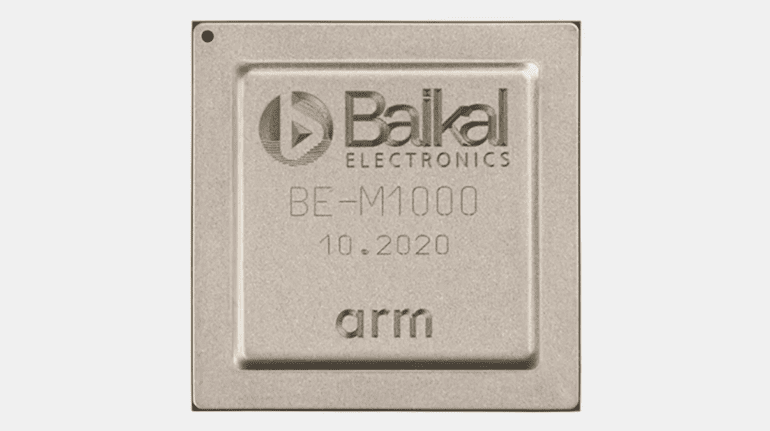TL;DR:
- Baikal Electronics, a Russian tech developer, is set to create AI processors over three years with a potential cost of $21.25 million.
- A new division was formed to craft specialized AI chips following cutting-edge architectural practices.
- Objective is to build a tailored software ecosystem for the new processors.
- Baikal’s ASICs focus on AI applications, with no clarity on training or inference specialization.
- Nvidia currently leads AI hardware market; export limitations on Nvidia products to Russia.
- Baikal aims to bridge the gap between global and Russian AI hardware.
- Uncertainty regarding fabrication partners due to geopolitical constraints.
- Amazon Web Services and Google offer cloud-based AI processors; Russian usage is unclear.
Main AI News:
In the rapidly evolving landscape of artificial intelligence (AI), Baikal Electronics, a prominent Russian player in processor and system-on-chip development, has embarked on an ambitious journey to harness the power of AI processors. This strategic endeavor, projected to unfold over a span of three years and potentially costing around 2 billion rubles ($21.25 million), is poised to address Russia’s escalating demand for advanced AI applications. Insights from an ex-MCST employee’s estimates further affirm the magnitude of this undertaking.
“Andrey Evdokimov, the driving force behind Baikal Electronics, reveals that a dedicated division has been meticulously assembled to craft a pioneering lineup of specialized chips engineered explicitly for the realm of artificial intelligence. The blueprint for these chips ingeniously amalgamates the most cutting-edge architectural practices available today,” affirms the visionary Chief Executive of Baikal, in an exclusive conversation with CNews. He emphasizes, “Our foremost objective is to construct an ecosystem of software harmoniously tailored to complement the prowess of these novel processors.”
This novel division is resolutely channeling its focus towards the creation of application-specific integrated circuits (ASICs) that are inherently crafted to seamlessly orchestrate the symphony of artificial intelligence. However, the astute leadership at Baikal Electronics refrains from explicitly detailing whether these ASICs will specialize in training, inference or if they are astutely optimized to execute both functionalities, mirroring the versatility of Nvidia’s top-tier GPUs. Pertinent aspects, such as project timelines, financial contours, and intricate facets of chip fabrication, are conscientiously guarded under wraps.
The AI arena currently bears witness to Nvidia’s formidable dominance, particularly in the realm of AI training and inference hardware. This tech giant’s virtual stranglehold on certain AI hardware segments has bestowed it with an unequivocal monopoly, a dynamic that is further reinforced by the prohibition of exporting Nvidia’s premium offerings like A100 and H100 to strategic regions like China and Russia, dictated by stringent U.S. export regulations.
As Maxim Maslov, the esteemed trailblazer spearheading AI ASICs innovation at Baikal, elucidates, “Nvidia unequivocally stands as the torchbearer in specialized chip innovation for artificial intelligence, effectively assuming the role of a monopolistic influence within select hardware niches.” The intricate global interplay of technology and geopolitics surfaces, as Maslov underscores, “The official embargo on exporting Nvidia’s technological marvels to Russia has been an impetus for us. Additionally, China faces analogous restrictions on acquiring avant-garde solutions.”
Yet, despite Nvidia’s triumphant strides, Maslov highlights a palpable chasm between the zenith of global AI advancements and indigenous Russian endeavors. The existent domestic solutions, albeit tailored to niche requirements, pale in comparison to the comprehensive spectrum of tasks encompassing artificial intelligence. He fervently contends, “A void persists—a deficiency of a requisite software ecosystem to fortify these domestic offerings.”
Intriguingly, Baikal Electronics envisions a strategic space for itself to proactively address Russia’s burgeoning requisites for AI hardware in the impending era. However, a pivotal query looms unanswered—where does Baikal intend to orchestrate the fabrication of its potent AI chips? Confronted by Taiwan’s stringent restrictions on shipping advanced processors to Russia and Belarus, industry giants such as TSMC and UMC find themselves eliminated from the pool of potential collaborators. U.S.-based Intel and GlobalFoundries are similarly dismissed due to the geopolitical sanctions imposed upon Russia by the United States and Europe.
Theoretically, China-based SMIC might emerge as a contender to materialize Baikal’s aspirations. Yet, the specter of increased scrutiny emanating from the U.S. government casts an apprehensive shadow upon this potential partnership.
While Amazon Web Services and Google wield their proprietary AI processors for training and inference, a palpable uncertainty clouds the extent of Russian enterprises’ reliance on these cloud-based AI services. As the narrative unfolds, Baikal Electronics strides forth to etch its distinctive mark on the horizon of AI innovation, poised to metamorphose Russia’s AI landscape.
Conclusion:
Baikal Electronics’ strategic move to develop advanced AI processors signifies a determined effort to challenge Nvidia’s prevailing dominance. The creation of a specialized chip lineup coupled with the pursuit of a complementary software ecosystem indicates a holistic approach to cater to Russia’s burgeoning AI needs. However, the market landscape remains uncertain due to geopolitical limitations on fabrication partners, despite the potential to bridge the gap between global and domestic AI hardware solutions. The evolving interplay between technology, geopolitics, and market demand will ultimately shape the trajectory of this emerging competition.

